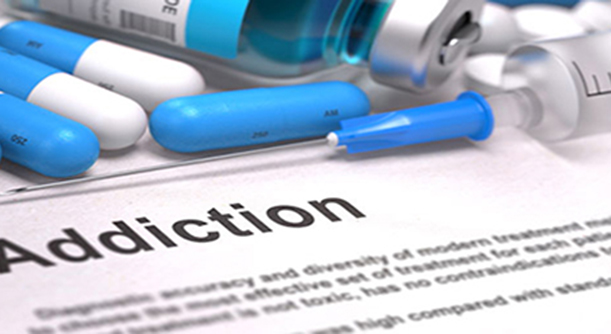Addictions are unique and devastating diseases: they affect the body, the mind and the spirit of a person. Understanding the multifaceted impact they have is a critical step towards an effective treatment. EPF Youth Group member, Yolita Pavlova shares some of her experience as a volunteer in addiction prevention.
The issue of effective treatment has been key to me ever since I started working as a volunteer in the field of prevention and treatment of addictions. I come from a family with addictions and understanding how to help people facing such problems in my country, Bulgaria, soon became a personal cause.
I met with doctors, attended trainings, and listened to many personal stories. I came to realise that anyone working in addiction prevention shared a common belief – this is a multileveled condition.
The Biopsychosocial model
One model in particular explains why treating addictions is so tricky: the Biopsychosocial model. According to this model, addictions are chronic conditions that consist of 3 components. To gain recovery, a structured approach to address each component of the condition with the adequate means, order, and length of the treatment is necessary. It is a long process that may consist of several episodes of treatment and has cumulative results.
- The first component addresses the physical and physiological changes that the substance intake causes, such as withdrawal symptoms associated with physical dependence that occur when the drug is no longer taken, the delirium tremens condition, etc. These symptoms are addressed with pharmaceutical means and mainly with medications for detoxification and reduction of craving. Drug detoxification can prevent unpleasant or fatal consequences resulting from sudden cessation of substance use and supports the patient on his/her road towards drug abstinence.
- The second one concerns the mind, models of thinking, and the behavior changes that appear as a result of excessive drug use. This component is best addressed through therapy – e.g. cognitive behavioral therapy, group therapy to change behavioral patterns, or therapy to increase motivation. The intervention of Consultants who are themselves recovering addicts in treatment programs is crucial as they provide their unique experience and deliver a message of strength and hope to those who do not believe cutting down on excessive substance use is possible.
- The third component of the model tackles the spiritual and moral dimension. Resocialization is the key factor to tackle this aspect – the recovering addict needs to learn how to function without the substance within his/her family, work life, and in society. Thus, resocialization groups such as the Alcoholic Anonymous self-help groups follow the model of smart recovery and the “12 steps approach”. The inclusion of the family in the recovery process is key for its success.
Excessive substance use is not the disease – it is a symptom
because of the multifaceted approach of the disease, addressing only one of its aspects – e.g. prescribing medicines for detoxification or drug substitution such as methadone without therapy and resocialization would probably result in less effective results.
By the same token, the misuse of the medicines prescribed to people with addictions within the framework of their treatment is more likely when there is no coordination during the long and multileveled process of recovery.
– No single treatment exists for addictions – Both pharmacological and behavioral approaches should be combined to pursue not just a temporary abstinence, but a full and happy life without the substance.
